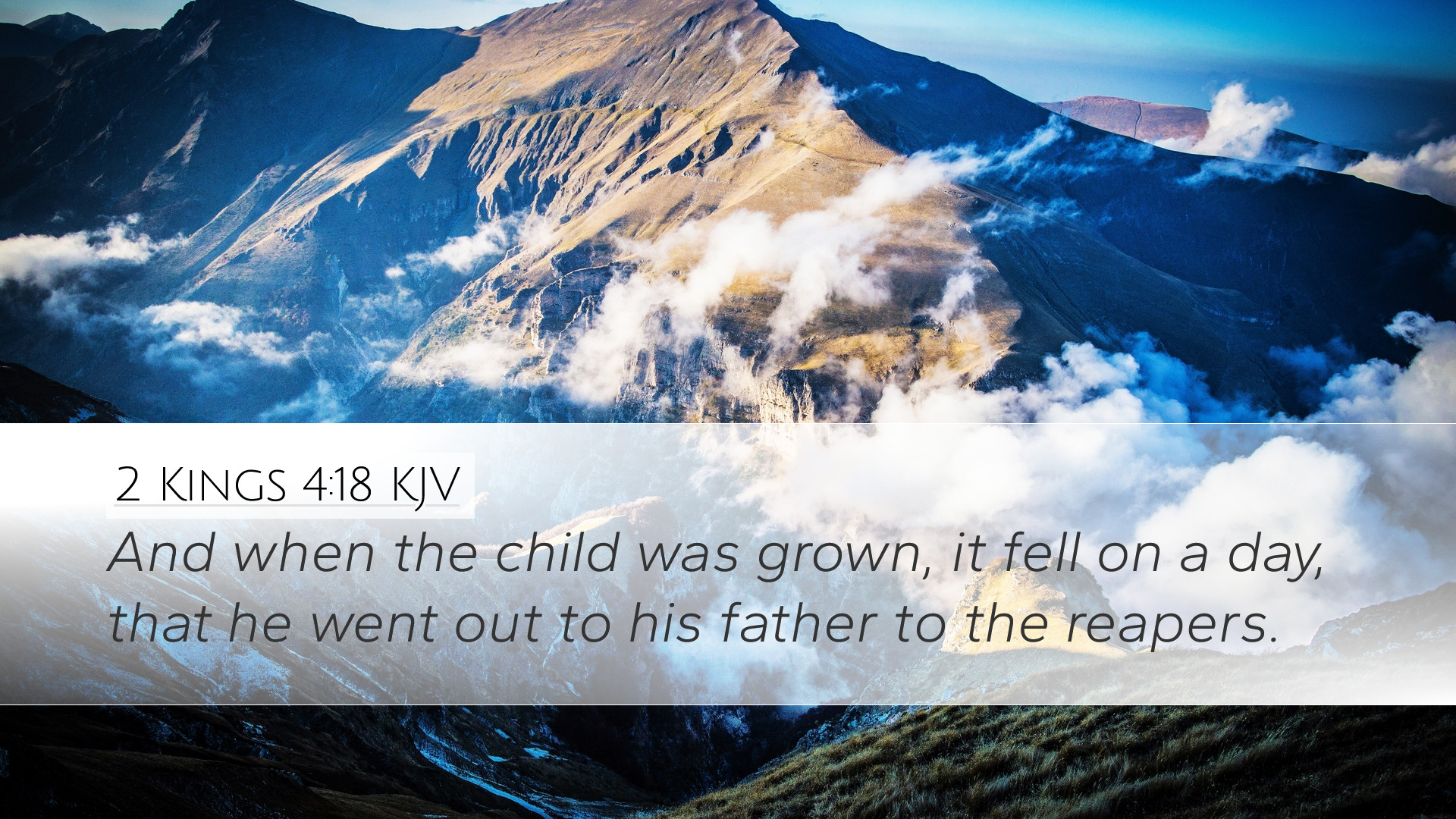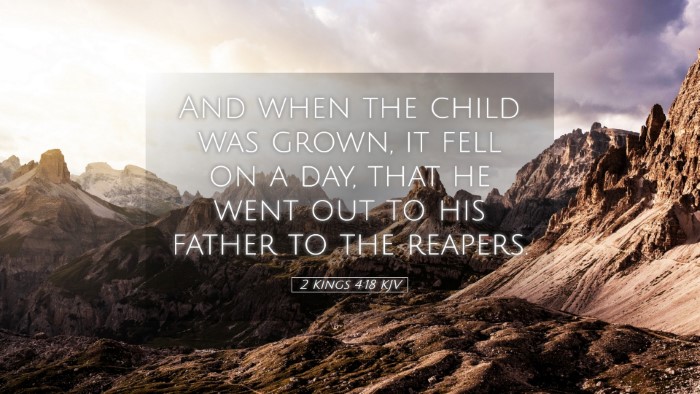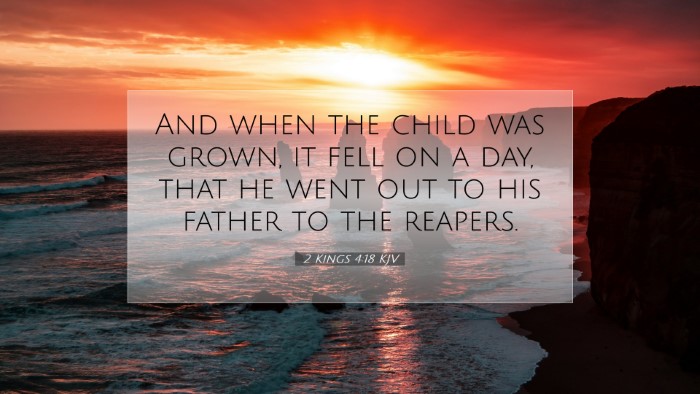Commentary on 2 Kings 4:18
Verse: "And when the child was grown, it fell on a day that he went out to his father to the reapers."
Contextual Background
This verse occurs in a passage that showcases God's miraculous provision and care through the ministry of the prophet Elisha. The Shunammite woman, previously introduced in 2 Kings 4:8-17, is a pivotal character in this narrative. Her dignified faith and hospitality towards Elisha lead to the miraculous birth of a son, a fulfillment of the prophet's promise to her.
Key Themes
- Parenthood and Divine Blessing: The miraculous birth of the child represents not just a personal blessing for the Shunammite woman and her husband but also illustrates God's faithfulness in granting desires that align with His purpose.
- The Reality of Suffering: The progression of the narrative reveals that spiritual blessing does not exempt us from life's trials. The phrase "it fell on a day" signals an unexpected turn in the story, suggesting that adversity can strike, even amidst divine favor.
- Seasons of Life: The child's growth symbolizes the stages of life that believers navigate, reflecting both joy and sorrow. His interaction with his father, amidst the harvest, suggests themes of labor, reward, and familial bonds.
Commentary Insights
Matthew Henry's Commentary
Henry notes the profound irony in the timing of the child’s illness. The child, once a promise of joy, now experiences a tragic episode. Henry emphasizes the unpredictability of life and how even the most blessed can endure trials. His advice to reflect on the grace of God during adversity is a vital reminder for believers, providing comfort and strength.
Albert Barnes' Notes
Barnes elaborates on the phrase "it fell on a day," interpreting it as indicative of life's unforeseen challenges. He encourages readers to understand that this event marks a pivotal moment in the narrative, as it transitions from a season of joy to one of testing. He notes the importance of the father’s role: a figure of strength amidst crisis, showcasing the involvement of parents in a child's spiritual journey.
Adam Clarke's Commentary
Clarke delves into the significance of the harvest mentioned alongside the father and child. He correlates the agricultural metaphor with spiritual labor, suggesting that the seasons of sowing and reaping apply to both life and faith. His perspective on the father’s reaction reveals deeper insights into parental care and response during times of trouble. Clarke emphasizes the necessity of faith when faced with trials, highlighting the potential for spiritual growth.
Theological Reflection
This verse challenges believers to grapple with the coexistence of divine blessings and life’s hardships. It serves as a reminder that faith is not merely a shield against difficulties but a pathway through them. Scholars and pastors should encourage congregations to maintain hope and trust in God’s providence, even when circumstances seem bleak.
Pastoral Applications
- Encourage Faith Amid Trials: Pastors should remind their communities that God's presence does not insulate one from suffering, yet He provides comfort and guidance through hardships.
- Highlight Parental Involvement: Engaging the church in discussions about the role of parents in the spiritual development of children can foster stronger family units.
- Use Harvest Metaphors: Incorporate agricultural metaphors in teaching to illustrate spiritual growth and reliance on God through the seasons of life.
Conclusion
2 Kings 4:18 is rich with implications for both the individual believer and the faith community. Through the lens of historical and spiritual analysis, this verse highlights the complexity of life—a tapestry woven with the threads of joy and sorrow, blessing and trial, faith and doubt. As theologians and scholars reflect on this passage, it becomes a call to embrace God's unfailing love and strength, irrespective of the circumstances, fostering resilience within the body of Christ.


